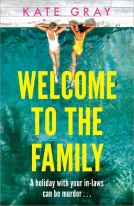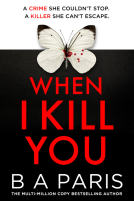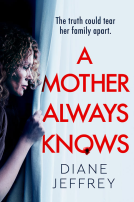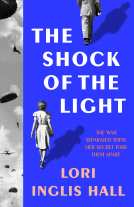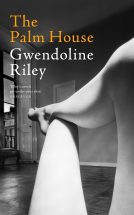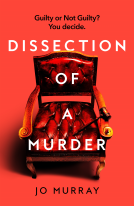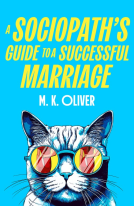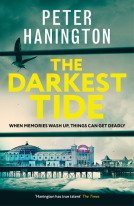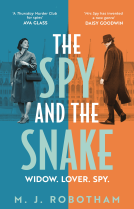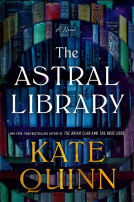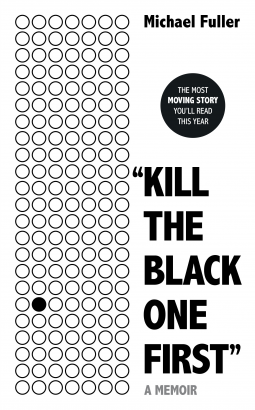
"Kill The Black One First"
by Michael Fuller
This title was previously available on NetGalley and is now archived.
Send NetGalley books directly to your Kindle or Kindle app
1
To read on a Kindle or Kindle app, please add kindle@netgalley.com as an approved email address to receive files in your Amazon account. Click here for step-by-step instructions.
2
Also find your Kindle email address within your Amazon account, and enter it here.
Pub Date 7 Feb 2019 | Archive Date 8 Mar 2022
Kings Road Publishing | 535
Talking about this book? Use #Ktbof #NetGalley. More hashtag tips!
Description
A story about race, identity, belonging and displacement, Kill the Black One First is the memoir from Michael Fuller - Britain's first ever black Chief Constable, whose life and career is not only a stark representation of race relations in the UK, but also a unique morality tale of how humanity deals with life's injustices. Michael Fuller was born to Windrush-generation Jamaican immigrants in 1959, and experienced a meteoric career in policing, from the beat to the Brixton inferno, through cutting edge detective work to the frontline of drug-related crime and violence on London's most volatile estates.
He took a pivotal role in the formation of Operation Trident, which tackled gun crime and gang warfare in the London community, and was later appointed as chief constable of Kent. "Kill The Black One First" is a raw and unflinching account of a life in policing during a tumultuous period of race relations throughout the UK.
Available Editions
| EDITION | Hardcover |
| ISBN | 9781788700849 |
| PRICE | $16.99 (USD) |
Average rating from 16 members
Featured Reviews
 Debra B, Reviewer
Debra B, Reviewer
For anyone to rise to the rank of Chief Constable must take talent and dedication. To do so against the backdrop of racism and hatred from all parts of society that this author endured during his career is truly astonishing. This is an uncomfortable read, shining a light on attitudes that were truly hurtful, but his spirit and determination shine through. Some lovely vignettes too, as he comes across people later in his career that he encountered at the start. Recommended.
 Eric A, Reviewer
Eric A, Reviewer
The title of Michael Fuller’s memoir “Kill the Black One First” is a startling statement - as it’s meant to be. This was something which was shouted by the public while he was the sole black police officer in a group of white officers trying to keep the peace during the Brixton riots in 1981 (an infamous confrontation amidst racial tension between police and protesters in South London that led to many injuries and widespread destruction.) The phrase epitomises the dire dilemma Fuller found himself in for much of his life working for the Metropolitan Police where he was often subjected to racism from within the predominantly white police force on one side and suspicious anger from sections of the black community who labelled him “coconut” on the other. Fuller recounts his life from his beginning growing up in a care home in the 1960s to eventually being appointed the first black chief constable in the UK in 2004. This is the story of a diligent, bright and sensitive individual who cares passionately about justice. Being a good conscientious police officer was his primary motivation in life. But, because of the colour of his skin, he faced innumerable obstacles which would have deterred many from pursuing this profession or abandoning it (Fuller highlights how few black police officers made a career at the Met due to feeling so isolated.) His journey is utterly inspiring and it powerfully illuminates the dynamics of racial conflict in England over the past fifty years from someone who was in a very unique position.
At the heart of Fuller’s journey is a quest to belong. Margaret, the young woman who ran the care home he was raised in for much of his childhood provided him with crucial guidance which gave him a strong moral core and taught him to “recognise that something’s offensive without being hurt by it. Stop. Think. Decide how you want to react.” This is a somewhat more constructive variation from what RuPaul’s mother famously advised him as a child: “People have been talking since the beginning of time. Unless they’re paying your bills pay them bitches no mind.” Anyway, Margaret’s advice proved invaluable throughout Fuller’s life as he encountered assumptions, prejudice and hatred from many people who seemed to believe that racism was an unchangeable part of English society. Fuller learned not to lash out when confronted with these dogmatic beliefs as it wouldn’t be productive and distance him from his fellow officers: “It made me wonder if I should speak up more often when, for example, my colleagues used racist language. But that could only create divisions, and I had spent the year trying to fit in with my shift, laughing and joking with them and not calling them to account.” However, this also created a tremendous mental burden and feelings of intense loneliness as he was often maligned by both the predominantly white police force and the black community. It sometimes lead him to feel he didn’t belong anywhere and he’s made painfully aware that “I’d been isolated by my colour all my life.”
Anyone who has encountered prejudice or injustice knows how one of the most debilitating consequences of it is how alone it makes you feel. Fuller observes how “Racism is a painful, humiliating thing to experience but the key to that pain is isolation. When others protest, offer support, turn that isolation back on the racists, the pain is greatly eased. Feeling alone with the hurt is far, far worse.” There are several instances where people realised that Fuller was experiencing racial abuse, but failed to speak up and defend him. It takes a lot of conviction to stand up to a bully when you’re not directly involved in the conflict. Probably all of us have experienced prejudice in some form and no one witnessing it intervened. We’ve also most certainly witnessed someone being victimised and not come to their defence. It’s one of the most challenging aspects of being a participant in society. But thankfully Fuller found some allies along his journey who were prepared to stand up to racism alongside him.
When he was just beginning his career Fuller’s father and friends mocked his desire to become a policeman: “You’re joining the police because you hate injustice! The police ARE injustice!” It’s heart breaking reading about the derision he faced when walking on the beat: “young, black males remained by far the most aggressive demographic towards me.” He faced a long challenging journey to help restore the public’s faith in the police force and institute changes within the police so that officers didn’t practice racial profiling or discrimination. He was instrumentally involved in landmark changes such as installing CCTV cameras in investigation rooms, using computers to look for crime patterns, instituting changes to prosecute hate crimes and helping the community and police to work together through an innovative initiative called Operation Trident. This involved a great deal of creative thinking and personal sacrifice as he frequently put himself at personal risk. It was also an unanticipated extension of his duty and drive as a policeman which was to catch criminals. It shows how police work is a much more complicated and nuanced job than that.
Fuller recounts many dramatic scenes and emotional encounters when reflecting on his long and distinguished career. It was shocking to learn how apathetically some policemen reacted to crime when they knew there was little chance of resolution or conviction – especially with instances of domestic violence or gang-on-gang warfare. An inconceivable amount of resolve was required to stay dedicated to his profession and maintain an active role in helping every victim of a crime. It’s also sobering to realise how the police force and country might not have benefited from his skills in bettering our communities if he’d found venture capitalists willing to take a punt on a very savvy business plan he formulated at one point to open a chain of coffee shops in London (before this became a booming business in the city.) Thankfully he remained with the Met and rose in the ranks to a point where he could implement changes that have utterly transformed police-community relations. He also serves as an invaluable figure of inspiration and hope. The full circle journey Fuller takes us on throughout this memoir is executed with considerable skill, but more than anything I feel in awe of this good man and loyal police officer.
Michael Fuller grew up in care, and from an early age knew he wanted to join the police. Though he faced discouragement and outright opposition in some cases, Fuller went on to rise through the ranks and become the first ever black Chief Constable of Kent.
This is a powerful and fascinating read. Giving a personal view of the Brixton riots, the Stephen Lawrence murder case, and Operation Trident, Fuller doesn't hold back in describing both the personal and institutional racism that he had to endure from some of his white colleagues, and the hatred from some sections of the black community for joining the police. As the author says, he felt as if he didn't belong anywhere. Some parts of it were shocking, with the brazen displays of racism shown, and the failure of others to speak out about it. Other parts were truly uplifting. Definitely a recommended read.
Thank you to NetGalley and publishers, Kings Road Publishing, for the opportunity to read an ARC. I am voluntarily giving an honest review.
 Stephen D, Reviewer
Stephen D, Reviewer
There will be others amongst us who have climbed to the top of their chosen career ladder from a broken family childhood and a young life in care but few can surely match the astonishing story of Michael Fuller. From care home to the first black Chief Constable at the age of 45 battling not only external racism, anger and hatred but from within his own Metropolitan Police force even to his face as a senior officer.
Fuller encountered just about every conceivable obstacle but his passion for justice and tolerance saw his major involvement in initiating new ideas such as Operation Trident, crime analysis patterns and CCTV in police stations while still experiencing lack of support from many of his peers.
From a personal view I would have liked the book to cover his final years as Chief Constable of Kent for his overall views of his Police service and as to whether the problems that he had encountered in his earlier days in the Met had, hopefully, been improved or indeed eradicated away from the economic, political and racial problems of a huge city force. Perhaps another book to come?
Thanks to NetGalley and 535 Bonnier Books for this chance to review.
 PAUL W, Reviewer
PAUL W, Reviewer
Having listened to an interview Michael did with Nihal Arthanayake on BBC 5 Live I was intrigued by his life story. It seemed like a film script but it's obviously the true account of his remarkable life. I would highly recommend taking the time to read Michael's book, it is brilliant.
An honest and enlightening memoir which highlights the changing attitudes within the Metropolitan police and the wider community. The book also challenges assumptions often made about children who are looked after and accommodated within the care system. Michael Fuller has certainly forged a interesting career and I'm glad that he chose to document and share his experiences with the world. A recommended read, particularly for any young person who feels isolated and excluded.
 Michele Y, Reviewer
Michele Y, Reviewer
Where do I start? This is the life story of Michael Fuller, from little black boy in care (and yes, I draw attention to the colour of his skin as this is a key feature in this book) to Chief Constable of Kent. He is an inspirational man, who has let nothing stand in his way to make our streets safer. He talks of the issues involved in initially not feeling part of the police because of the colour of his skin, yet being abused by the black community for being part of the police. The book is simply written, meaning it is very easy to read – in fact my 12 year old daughter is now reading it on my recommendation – but does not avoid difficult issues. It is clear to see how far we have come from the 1950s and 60s, but Michael Fuller shows we still have a long way to go. The epilogue brought tears to my eyes, as he tells how he found out about his early life and how he came to be in care. I cannot recommend this book highly enough. Please read it.
Readers who liked this book also liked:
M. K. Oliver
General Fiction (Adult), Humor, Mystery & Thrillers
